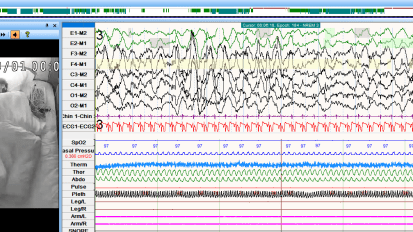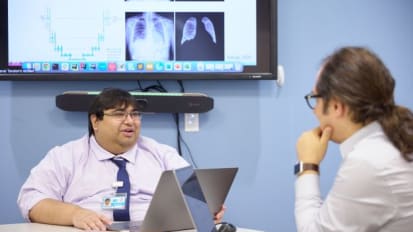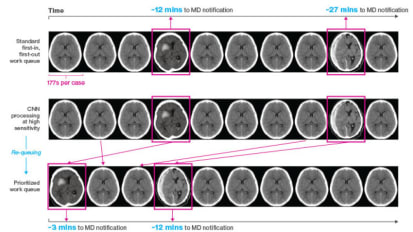AI at Mount Sinai
|view more
 News
News
AI Speeds Search for Therapies That Fight Adenocarcinoma
Mount Sinai researchers are assessing a platform that can conduct in silico scans of millions of potential drugs each day to identify candidates for testing and validation. The goal is to facilitate the identification of safe, effective ...
 News
News
Powering Precision Medicine with AI - For Everyone
Dr. Kuan-lin Huang’s lab is using AI and machine learning to improve disease risk prediction and treatment - integrating rare and common genetic variants from diverse populations to power more accurate, equitable, and individualized approaches ...


































